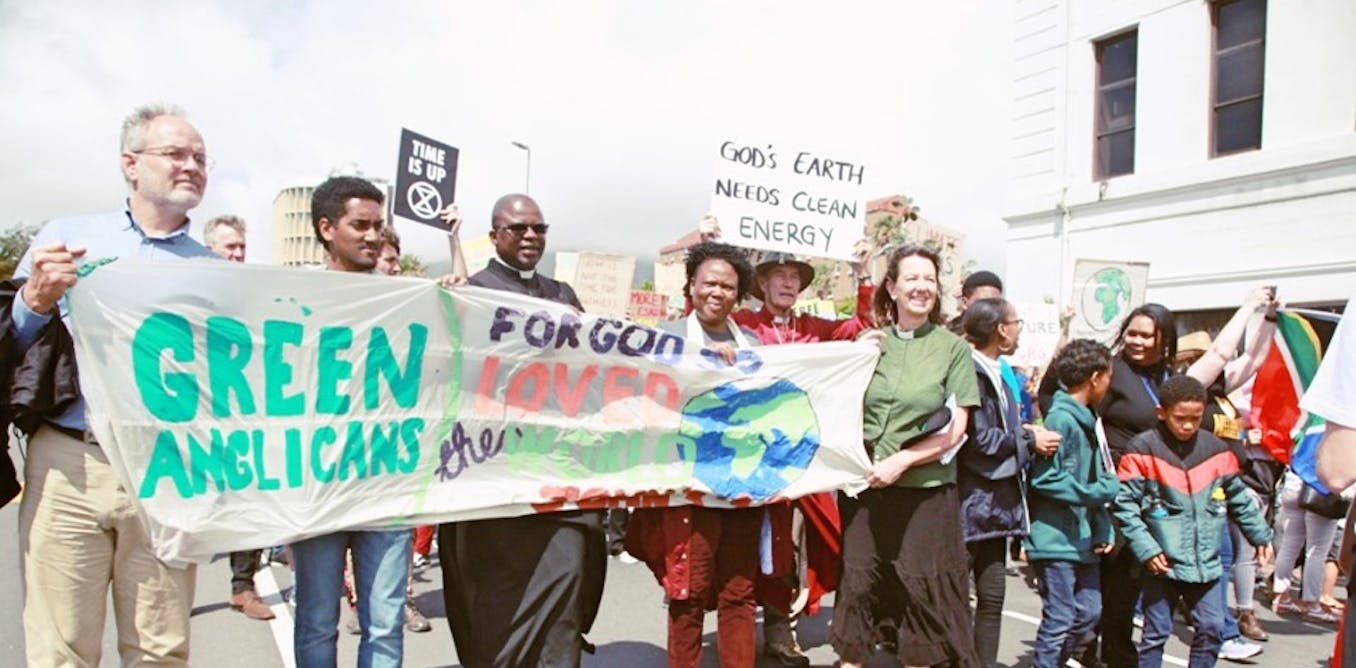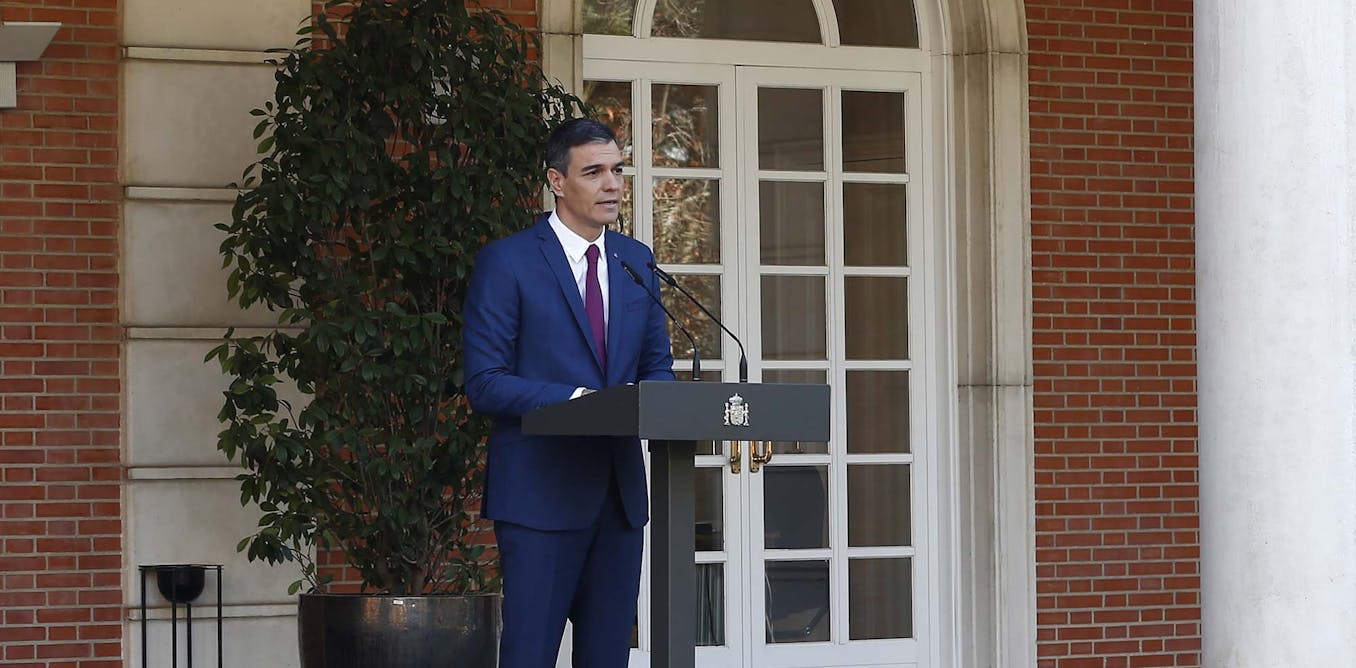   
CEO Picks - The best that international journalism has to offer!
 S70 S70Hydrogen Is Just Another Hole for Natural Gas to Fill   In a way, the story of American natural gas is a particularly American story, one of entrepreneurial hustle, booms and busts, and a will to find opportunity where nobody’s looked. Of resourceful self-preservation for the sake of self-preservation alone. Of supply needing demand, and of manufacturing that demand through the means at hand, even if the logic is sometimes tough to follow. Natural gas has fueled American homes, American electricity, and, more recently, American plastics, an industry more usually fed by oil. As the grand ambitions for that last endeavor have begun to show signs of waning, the industry has once again pivoted, this time to embrace its potential as part of America’s climate future. When the Biden administration announced this year that its build-out of facilities for hydrogen—a fuel that could help reduce emissions from heavy industry—would have a starring role for natural gas, it was hardly a surprise: The industry appears to have worked hard to ensure its place.The gas industry has had plenty of practice making a case for itself. A few decades ago, when the U.S. as a whole was becoming more environmentally minded, the newly formed Environmental Protection Agency was eying the gas industry, and public-health research was beginning to suggest that gas stoves might be bad for health. In the 1970s and ’80s, the industry went on an offensive to downplay those dangers, using the same strategies, even the same PR firms, as the tobacco industry to avoid regulation, and was largely successful. Preserving demand for the product—gas stoves were “gateway” appliances that made a home more likely to have a gas furnace, a gas clothes dryer, and so on—was key.
Continued here
|
 S70 S70Star Wars Actor Debunks a Pervasive 'Mandalorian' Fan Theory   Maintaining an air of mystery can be a double-edged sword for any popular character. There’s something to be said for the unspoken cool factor it affords, but when it comes to gaining the trust of a captive audience, mystery can harm as much as it helps. The Star Wars saga is chock full of characters in that gray area. That mystique can make you root for morally nuanced characters like Lando Calrissian and Han Solo, but as modern Star Wars projects double down on a binary view of good and evil, it’s become trickier for heroes with nebulous intentions to get by.
Continued here
|
 S2 S2How to Tap the Full Potential of Telemedicine   Telemedicine visits in the United States have fallen sharply since April 2020, but the end of the pandemic should not spell the end of telemedicine. It can play a valuable role in the delivery of health care. The key to tapping its potential is to bring many elements of the clinic to the patient. An array of new technologies and services is making that possible.
Continued here
|
 S3 S35 Tactics to Combat a Culture of False Urgency at Work   The headwinds of false urgency can be intense. But they also foster a reactive culture. If everything is urgent, there’s little opportunity for creative and deep work, which tends to flourish only when there’s time and space. In this article, the author offers tips that will help you focus on what’s truly urgent in your organization and enable your team to deliver strong results and sustain high performance over time.
Continued here
|
 S4 S4Everything Starts with Trust   Trust is the basis for almost everything we do. It’s the foundation on which our laws and contracts are built. It’s the reason we’re willing to exchange our hard-earned paychecks for goods and services, to pledge our lives to another person in marriage, and to cast a ballot for someone who will represent our interests. It’s also the input that makes it possible for leaders to create the conditions for employees to fully realize their own capacity and power.
Continued here
|
 S5 S5How Brands Can Sell to Environmentally Conscious Nonconsumers   New research into how consumer attitudes about climate change affect their behavior and purchasing habits find that the largest segment is “Conscious Non-consumers” — that is, people who have changed their behavior to help the environment, but are not purchasing environmentally friendly products. For companies selling these products, reaching this segment of consumers can be a source of profits and impact. The research finds specific barriers that prevent this group from making sustainable purchases — and corresponding strategies to help overcome those barriers.
Continued here
|
 S6 S6What Leaders Really Do   Leadership is different from management, but not for the reasons most people think. Leadership isn’t mystical and mysterious. It has nothing to do with having “charisma” or other exotic personality traits. It is not the province of a chosen few. Nor is leadership necessarily better than management or a replacement for it. Rather, leadership and management are two distinctive and complementary systems of action. Each has its own function and characteristic activities. Both are necessary for success in today’s business environment. Management is about coping with complexity. Its practices and procedures are largely a response to the emergence of large, complex organizations in the twentieth century. Leadership, by contrast, is about coping with change. Part of the reason it has become so important in recent years is that the business world has become more competitive and more volatile. More change always demands more leadership. Most U.S. corporations today are over-managed and under-led. They need to develop their capacity to exercise leadership. Successful corporations don’t wait for leaders to come along. They actively seek out people with leadership potential and expose them to career experiences designed to develop that potential. Indeed, with careful selection, nurturing, and encouragement, dozens of people can play important leadership roles in a business organization. But while improving their ability to lead, companies should remember that strong leadership with weak management is no better, and is sometimes actually worse, than the reverse. The real challenge is to combine strong leadership and strong management and use each to balance the other.
Continued here
|
 S7 S7How Management Teams Can Have a Good Fight   Top-level managers know that conflict over issues is natural and even necessary. Management teams that challenge one another’s thinking develop a more complete understanding of their choices, create a richer range of options, and make better decisions. But the challenge–familiar to anyone who has ever been part of a management team–is to keep constructive conflict over issues from degenerating into interpersonal conflict. From their research on the interplay of conflict, politics, and speed in the decision-making process of management teams, the authors have distilled a set of six tactics characteristic of high-performing teams:
Continued here
|
 S8 S8Leading in the Age of Exploding Transparency | Melissa Swift   Our special report on innovation systems will help leaders guide teams that rely on virtual collaboration, explores the potential of new developments, and provides insights on how to manage customer-led innovation.Our special report on innovation systems will help leaders guide teams that rely on virtual collaboration, explores the potential of new developments, and provides insights on how to manage customer-led innovation.The seasoned CIO wakes up groggy to a flurry of texts from his team, who found out about the CEO’s retirement from LinkedIn because the internal announcement got stuck in everyone’s spam filters. As Frank huffs and puffs around the park during his morning run, his boss quizzes him by phone about some troubling numbers on a brand-new dashboard. Arriving at the office already feeling beleaguered, he spits iced coffee all over his keyboard when an email alerts him that another leader in the organization dramatically documented her departure on “QuitTok” — racking up half a million views already.
Continued here
|
 S9 S9How much it costs to attend the Burning Man festival   It's not easy – or cheap – to pop up a bustling city from empty desert ground. But that's exactly what happens at the Burning Man festival, held annually in Nevada's Black Rock Desert.Burning Man started in 1986 at a San Francisco beach with 35 people united by "the pursuit of a more creative and connected existence in the world"; this week, nearly 70,000 people are making their way out of the muddy desert after Burning Man's 37th year. The now nine-day festival has morphed into a massive brand and destination, where so-called "Burners" from around the world build a civilisation together from scratch, complete with art installations, healing camps, inspiring talks and live DJs.
Continued here
|
 S10 S10In the age of public salary-range listings, some jobseekers feel duped   In October, Mary submitted an online application for a communications job at a large multinational firm. She satisfied or exceeded all the requirements for the role, so she requested a figure in the top quartile of the salary range listed in the job description. Within 24 hours, Mary had been notified of her rejection with an automated email.A few days later, she got a private tip from an acquaintance in the company's recruiting department: the desired salary she wrote was too high, and the company had no intention of honouring the full range it listed in the job posting. The algorithm used to screen applications had simply eliminated her.
Continued here
|
 S11 S11Massimo Bottura's new "Not Barbecue" restaurant   I'm three dishes deep into the tasting menu at Al Gatto Verde – Massimo Bottura's new "Not Barbecue" restaurant at Casa Maria Luigia, his intensely stylish guesthouse on the outskirts of Modena, Italy – when the cotechino sangue di drago arrives.Cotechino, a Northern Italian pork sausage flavoured with juniper, cloves and garlic, is the quintessential Italian New Year's Eve dish; stewed with lentils and served at midnight. I've eaten it every winter of my life, but only on New Year's, and never on an early autumn night in the ochre-hued Emilian hills, surrounded by edgy artwork.
Continued here
|
 S12 S12The large and fluffy tamale few know   Deep inside a 6th Century Mayan pyramid in Guatemala's Petén region, archaeologist Francisco Estrada-Belli stumbled on a massive carved frieze; a mythological scene. A Mayan king in apotheosis is flanked by two ancestor gods, each holding out a round-shaped offering. The glyph beneath reads: The first tamale."This was the biggest discovery of my life," said Estrada-Belli of the 2013 find. "It's very powerful symbolism that tells you how fundamental the tamale was regarded by the Maya."
Continued here
|
 S13 S13Is Squid Game: The Challenge unethical or top entertainment?   If you want to watch a man crying and almost vomiting from stress – and it seems millions of us do – Netflix has you covered with its latest hit. According to unofficial metrics, since the first five episodes of Squid Game: The Challenge (SGTC) were made available last week, the addictive reality game show has topped Netflix’s charts in numerous countries, including the US and the UK. Early official figures for the UK have appeared to confirm its popularity.It is inspired by Squid Game, a nine-part dystopian drama which arrived on Netflix in 2021 and became the streamer’s most watched show ever according to its own figures. In the South Korean fictional series, 456 people who desperately need money sign up to take part in a secret, deadly elimination contest based on children's games; the last player left standing wins a cash prize of 45.6 billion South Korean won. It is revealed over the course of the show that – spoiler alert – the competition is being staged for bored super-wealthy patrons. The series has been widely interpreted as satirising capitalism.
Continued here
|
 S14 S14Slapps: inside Europe's struggle to protect journalists from malicious lawsuits   Francesca Farrington has consulted to the European Parliament, the United Nations Office of the High Commissioner for Human Rights, and the Coalition Against SLAPPs in Europe (CASE). Justin Borg-Barthet has consulted to the European Parliament, the European Commission, the United Nations Office of the High Commissioner for Human Rights, and the Coalition Against SLAPPs in Europe (CASE).
Continued here
|
 S15 S15Umaru Shehu: Nigerian public health giant who played a major role in polio eradication   Professor Emeritus Umaru Shehu, who died on 2 October 2023, was born in Yerwa (Maiduguri), Nigeria, in 1930. Widely regarded as one of the country’s early leaders in public health policy and practice, he was the first public health physician in the northern region and remained active all his life. He will be remembered for his great work in eradicating poliomyelitis from Nigeria. He started the National Programme on Immunisation in 1995 and was the agency’s first chairman. His efforts, with others, culminated in Nigeria achieving polio-free status on 18 June 2020. The country was officially declared free of the disease on 25 August 2020. Poliomyelitis mainly affects children under five years of age.
Continued here
|
 S16 S16Faith communities are rallying to check climate change - their size and influence counts   According to the United Nations Environment Programme (UNEP), more than 80% of the global population are motivated by a faith or spirituality. Faced with the triple planetary crises of pollution, biodiversity loss and climate change, what role can faith communities play in saving the planet?In a recent publication, we looked at the role of two faith-based organisations – the Green Anglicans movement, which is present in 13 African countries, and UNEP’s Faith for Earth Initiative, a UN programme which partners with faith-based organisations on development goals. Our aim was to find out what role faith and religion can play in addressing climate change both at the grassroots and within the UN.
Continued here
|
 S17 S17Sharpeville: new research on 1960 South African massacre shows the number of dead and injured was massively undercounted   On 21 March 1960 at 1.40 in the afternoon, apartheid South Africa’s police opened fire on a peaceful crowd of about 4,000 residents of Sharpeville, who were protesting against carrying identity documents that restricted black people’s movement. The police minimised the number of victims by at least one third, and justified the shooting by claiming that the crowd was violent. This shocking story has been thus misrepresented for over 60 years.The Sharpeville Massacre ignited international outrage and the birth of the Anti-Apartheid Movement worldwide. It also led to renewed political protests inside South Africa. These were met with the total suppression of political movements that lasted for 30 years. Despite its historic importance, Sharpeville as a place and a community has remained unknown to the wider public and its residents anonymous. Yet they have a story to tell.
Continued here
|
 S18 S18Zambia's foreign debt tragedy - what needs to happen to resolve the crisis   Three years after defaulting on its foreign debt, Zambia is still trying to reach agreement with all its creditors on how to manage this situation. This has left the southern African country in a state of development finance limbo. It is handicapped in raising the funds needed to generate jobs, build infrastructure, provide health, education and social services and deal with climate change. Its president, Hakainde Hichilema, has warned that the situation threatens to undermine its democracy.Zambia’s inability to reach a definitive agreement with all its creditors is not for lack of trying. But it has had bad luck. It is the test case for the Common Framework that the G20 international forum established in November 2020 to deal with the debts of low-income countries. The framework was expected to result in all creditors making comparable contributions to help a defaulting country resolve its debt crisis.
Continued here
|
 S19 S19Unwrapping Uranus and its icy secrets: What NASA would learn from a mission to a wild world   Uranus, the seventh planet from the Sun, orbits in the outer solar system, about two billion miles (3.2 billion kilometers) from Earth. It is an enormous world – quadruple the diameter of Earth, with 15 times the mass and 63 times the volume. Unvisited by spacecraft for more than 35 years, Uranus inhabits one of the least explored regions of our solar system. Although scientists have learned some things about it from telescopic observations and theoretical work since the Voyager 2 flyby in 1986, the planet remains an enigma.
Continued here
|
 S20 S20 S21 S21Philly parents worry about kids' digital media use but see some benefits, too   A group of U.S. senators recently called on tech giant Meta – which owns Facebook, Instagram, WhatsApp and Facebook Messenger – to hand over documents related to the mental and physical harms its products cause to young people. The demand follows a lawsuit filed by 33 states in October 2023 that alleges that Meta, in order to maximize profits, knowingly designs addictive social media features. The lawsuit states these features are designed “to entice, engage, and ultimately ensnare youth and teens.”Although we did not set out to study parental concerns about children’s media use, every one of the parents expressed worries. Only eight parents discussed any positive aspects of media use.
Continued here
|
 S22 S22 S23 S23 S24 S24Writing instructors are less afraid of students cheating with ChatGPT than you might think   Troy Hicks is affiliated as an occasional consultant with Writable, a web-based platform to support writers and the teaching of writing which also includes an AI-enhanced revision assistant. When ChatGPT launched a year ago, headlines flooded the internet about fears of student cheating. A pair of essays in The Atlantic decried “the end of high-school English” and the death of the college essay.“ NPR informed readers that ”everybody is cheating.“
Continued here
|
 S25 S25The four challenges faced by Spain's new government   Pedro Sánchez’ investiture marks the beginning of the third consecutive parliamentary term led by the Spanish Socialist Workers’ Party (PSOE). After a fraught period of negotiations, Sánchez now leads a broad coalition government along with seven other parties.The new government faces enormous challenges, not least the fallout from the controversial Amnesty Law pardoning hundreds of Catalan separatists which has been dominating headlines. This will continue to shape public discourse over the coming months and determine the continuity of the government.
Continued here
|
 S26 S26As seas get warmer, tropical species are moving further from the equator   Climate change is causing tropical species in the ocean to move from the equator towards the poles, while temperate species recede. This mass movement of marine life, termed tropicalisation, is leading to a cascade of consequences for ecosystems and biodiversity, and has the potential to impact the global economy.My colleagues and I recently identified and reviewed 215 tropicalisation-related scientific papers published between 2003 and 2023. Our work, now published in the journal Trends in Ecology and Evolution, reveals the extent of this species movement, and demonstrates just how widespread its consequences can be.
Continued here
|
 S27 S27Wind turbine blades: inside the battle to overcome their waste problem   Kieran Ruane is a co-director in BladeBridge.ie, a spin-off company which offers bridge manufacturing and outdoor furniture made from used wind turbine blades. Wind-farm owners in Europe are holding off on scrapping their old turbines to maximise the power they can generate from them. That’s the latest news from a meeting we recently attended on the industry’s future. Wind turbines are designed to last 25 years, but the calculus for owners appears to have shifted because of the surge in electricity prices due to the Ukraine war.
Continued here
|
 S28 S28 S29 S29 S30 S30 S31 S31Should I have children? Here's what the philosophers say   Parenthood has traditionally been considered the normal outcome of growing up. A side effect of reaching maturity. Across Europe and the US, only 10%-20% of adults remain childless or (more positively) child free. In some cases, this is accidental. People wait for an ideal time that never arrives – and then it is too late.Anti-natalism is the philosophical view that it is ethically wrong to bring anyone else into being. The justifications draw upon worries about suffering and choice. And it’s not an exclusively modern attitude. The ancient Greek playwright Sophocles, writing at the end of the 5th century BC, tells us that it is “best of all” not to have been born, because life contains far more suffering than good.
Continued here
|
 S32 S32Nazi doctors weren't just 'a few bad apples', shows report - and simplistic stories won't help guard against future medical abuses   Extraordinary evil involves a total moral collapse across society caused by failure of individual humanity and ethical judgment. This was the conclusion of the philosopher Hannah Arendt after witnessing the trial of Adolf Eichmann – the chief architect of the Holocaust – in Jerusalem.Medicine, which is supposed to alleviate human suffering, became a willing accomplice in Nazi mass murder. Although medical professionals had been involved in abusive practices on human subjects and populations before, under Nazi rule the scale of their professional lapse was extreme in every respect.
Continued here
|
 S33 S33How a small Caribbean island is trying to become hurricane-proof   Director, Resilient and Sustainable Islands Initiative at the ODI, and Co-director, Caribbean Resilience and Recovery Knowledge Network, University of the West Indies, Mona Campus When Hurricane Maria struck the eastern Caribbean island of Dominica in 2017, it caused the kind of devastation which is unthinkable to larger countries. The Category 5 hurricane damaged 98% of building roofs and caused US$1.2 billion (£950 million) in damage. Dominica effectively lost 226% of its GDP overnight.
Continued here
|
 S34 S34Lloyds of London archives show how important the City was to transatlantic slavery   Katie Donington was on the advisory board for the 'Underwriting Souls' project. She worked on the ESRC-funded 'Legacies of British Slave-ownership' project (2009-2012) and the AHRC/ESRC-funded 'Structure and Significance of British Caribbean slave-ownership, 1763-1833' project (2013-2015).In 1783, the City of London was gripped by a court case which symbolised the brutal economics of slavery. Two years previously, the Liverpool slave ship Zong had set out from Accra, in present-day Ghana, with 442 men, women and children crammed in its hold.
Continued here
|
 S35 S35 S36 S36 S37 S37Science communicators need to stop telling everybody the universe is a meaningless void   The scientific worldview has made great contributions to humanity’s flourishing. But, as science advances into territory once firmly held by religion – attempting to answer questions about the origins of the universe, life and consciousness – science communication often paints a fairly pessimistic picture of the world.Take a few examples. An article in New Scientist claims our perception that pet dogs love us may be an illusion. Physicist Brian Greene sees humanity’s ultimate fate in the demise of the Solar System. Writer Yuval Noah Harari, in his bestselling book Sapiens, posits that life holds no inherent meaning. Philosopher David Benatar goes so far as to argue that being born is a bad thing.
Continued here
|
 S38 S38'I can see the characters': how reading aloud to patients can break through 'cancer fog'   If you were going through cancer treatment, wouldn’t you want to escape your reality for a while? Reading a story can offer an alternate world, a chance to catch your breath from the cycle of appointments and treatment, offering imagined companions. Solace is an intangible bedfellow, but a good story weaves a certain kind of magic.However, a problem arises in the form of “cancer fog”, a frequent but unwelcome side-effect of cancer and its forms of treatment. Cancer fog, also known as cancer-related cognitive impairment, can affect problem-solving, concentration, memory, motivation, navigation, keeping track of conversations, visual processing and hence, reading.
Continued here
|
 S39 S39
 |
TradeBriefs Publications are read by over 10,00,000 Industry Executives About Us | Advertise Privacy Policy Unsubscribe (one-click) You are receiving this mail because of your subscription with TradeBriefs.
Our mailing address is GF 25/39, West Patel Nagar, New Delhi 110008, India |



























































































































